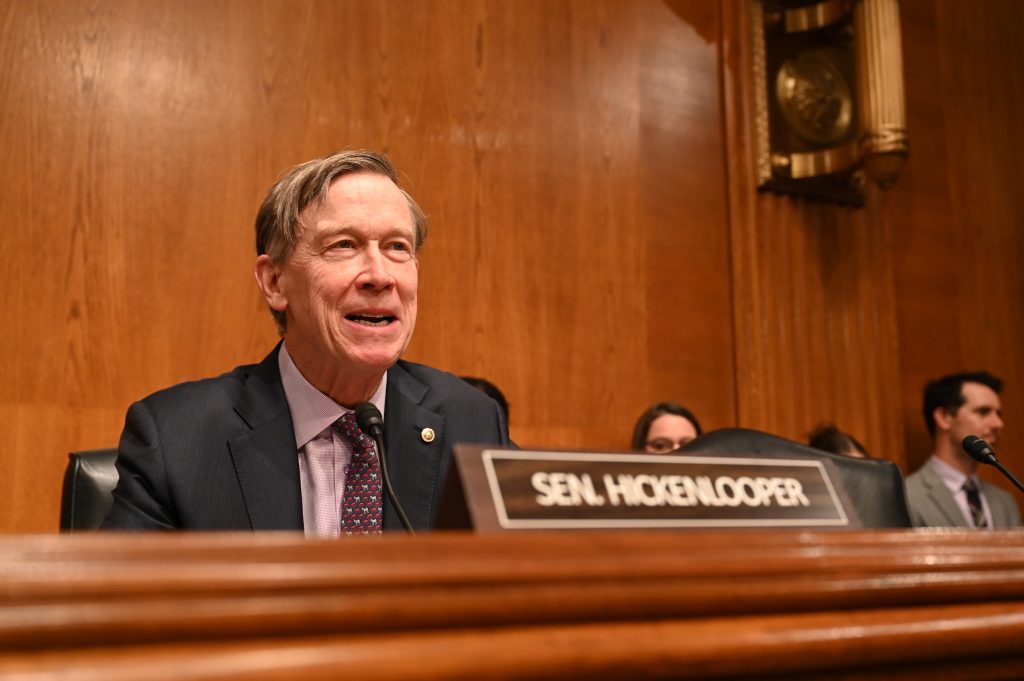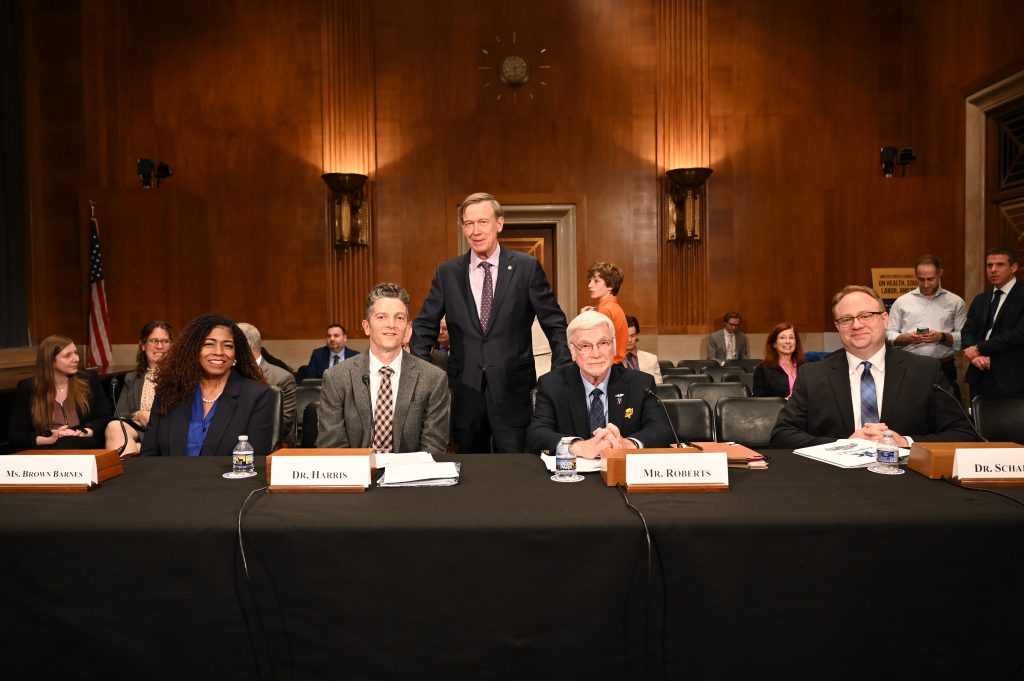Chair Hickenlooper: “Our miners deserve safety and protection in their workplace just like any other job.”
WASHINGTON – Today, U.S. Senator John Hickenlooper chaired a hearing of the Senate Health, Education, Labor and Pension Committee’s Subcommittee on Employment and Workplace Safety to examine efforts to promote the health and safety of our mining workforce and explore innovative technologies to monitor and improve safety.
“For a long time, we’ve relied on our miners to help us keep the lights on, and we owe it to them to make sure that they have a safe and healthy workplace,” said Hickenlooper at the hearing. “We need to strike the right balance to procure these important resources responsibly and protect both our communities and our workers. That means ensuring health and safety standards and supporting new mining safety technologies.”

Hickenlooper was joined by Ranking Member Mike Braun; Cindy Brown Barnes, Managing Director of Education, Workforce, and Income Security at the United States Government Accountability Office, Drew Harris, MD, Associate Professor of Medicine at the University of Virginia and Medical Director of the Stone Mountain Black Lung Program; Cecil E. Roberts, President of United Mine Workers of America; and Steven Schafrik, Ph.D., Associate Professor of Graduate Studies, Mining Engineering at the University of Kentucky.

The hearing discussed the federal Black Lungs Benefits Program, which provides benefits to coal miners disabled from black lung disease arising from their employment in mines and their dependents. National Jewish Health in Denver is a national leader in treating patients suffering from black lung disease and is the only Health Resources and Services Administration funded black lung clinic in the state.
Hickenlooper also spoke about America’s transition to a clean energy economy, which will help secure our energy independence and combat climate change. Colorado School of Mines in Golden is helping to build the next generation of mining leaders and spurring exciting innovations in the mining industry.
“As we make this new transition, I think it’s an exciting time, we have to make sure that miners are not left behind. These workers are going to be as important, probably more important than they ever have been,” said Hickenlooper at the hearing. “We’re going to need critical minerals, like cobalt and graphite, to build electric vehicles, to build wind turbines, and to support nuclear power.”
For a full video of Hickenlooper’s opening remarks, click HERE.
Full text of Hickenlooper’s opening remarks below:
“For a long time, we’ve relied on our miners to help us keep the lights on, and we owe it to them to make sure that they have a safe and healthy workplace.
“And that’s why we’re here today: to talk about what’s needed to best protect our miners, both today and in the future.
“For generations, we’ve relied on resources like coal, uranium, copper, to fuel our economy, to run electrical generators, to support infrastructure, and power, not just manufacturing, but all aspects of our society.
“We know that the work to extract these resources can be dangerous without good and consistent safety measures in place.
“Thousands of miners have contracted and died from preventable diseases like black lung and silicosis. Our miners deserve safety and protection in their workplace just like any other job.
“Our country, I think, is at the cusp of, I call it a ‘Great Transition.’ We’re gearing up for a clean energy economy to help secure energy independence and to address climate change in a pragmatic and real way.
“As we make this new transition, I think it’s an exciting time, we have to make sure that miners are not left behind. These workers are going to be as important, probably more important than they ever have been.
“We’re going to need critical minerals, like cobalt and graphite, to build electric vehicles, to build wind turbines, and to support nuclear power.
“But we’re going to have to work – and fast. For some of these minerals, we currently don’t have close to enough for what we anticipate we’ll need. For others, our processing options are too long, our supply chains are too concentrated, really.
“We need to strike the right balance to procure these important resources responsibly and protect both our communities and our workers.
“That means ensuring health and safety standards and supporting new mining safety technologies.
“And we need to build trust and strengthen workforce pipelines for the mining industry altogether.
“Now we can do this by taking steps to proactively protect our miners and making sure that the mines that we create are safer. Safer than they’ve ever been.
“These actions should look like:
“Mitigating exposure to the irritants that cause preventable mining illnesses like black lung and silicosis. What started out as irritants over a period of years, lead to these insidious diseases;
“We need to make sure that federal benefits, like those available under through the Black Lung Benefits program and the Radiation Exposure Compensation Act, are available to the workers who need them;
“And we should be exploring how we can make sure that workplace safety resources, like real-time dust sampling technologies, are accessible to workers and employers around the country.
“I appreciate Ranking Member Braun for working with us to host this hearing. I also want to thank Senators Kaine and Casey for their collaboration on this issue that they both have worked on so hard for so long and both know so well. In many cases their constituents have been side by side with them.”
###
